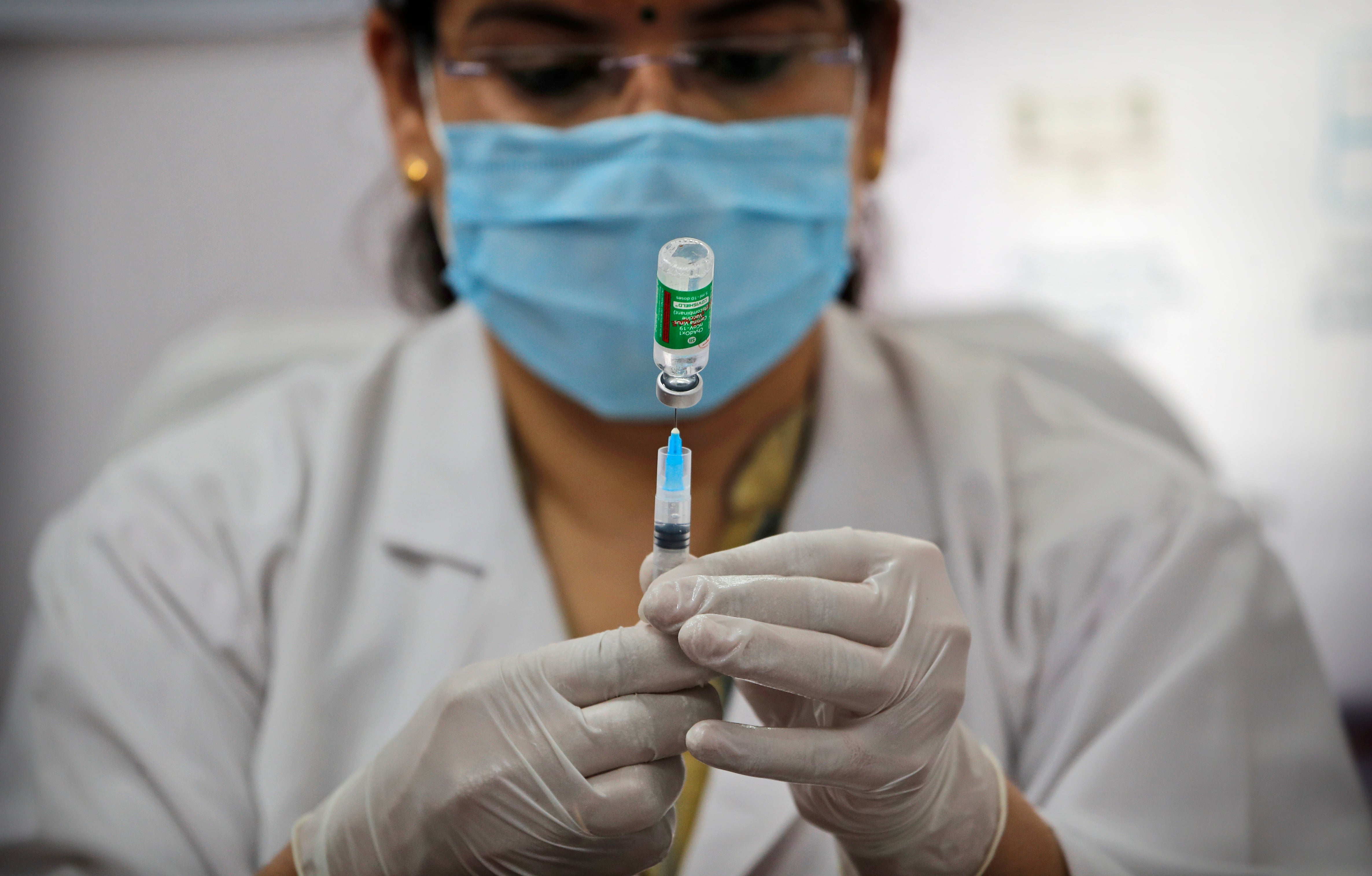Asia Today: India expands its vaccination drive
India is expanding its COVID-19 vaccination drive beyond health care and front-line workers, offering the shots to older people and those with medical conditions that put them at risk

Your support helps us to tell the story
From reproductive rights to climate change to Big Tech, The Independent is on the ground when the story is developing. Whether it's investigating the financials of Elon Musk's pro-Trump PAC or producing our latest documentary, 'The A Word', which shines a light on the American women fighting for reproductive rights, we know how important it is to parse out the facts from the messaging.
At such a critical moment in US history, we need reporters on the ground. Your donation allows us to keep sending journalists to speak to both sides of the story.
The Independent is trusted by Americans across the entire political spectrum. And unlike many other quality news outlets, we choose not to lock Americans out of our reporting and analysis with paywalls. We believe quality journalism should be available to everyone, paid for by those who can afford it.
Your support makes all the difference.India has expanded its COVID-19 vaccination drive beyond health care and front-line workers offering the shots to older people and those with medical conditions that put them at risk
Those now eligible to be vaccinated include people older than 60, as well as those over 45 who have ailments such as heart disease or diabetes that make them vulnerable to serious COVID-19 illness. The shots will be given for free at government hospitals and will also be sold at over 10,000 private hospitals at a fixed price of 250 rupees, or $3.40, per shot.
Among the first to be inoculated on Monday was Prime Minister Narendra Modi Modi, who is 70, got the shot at New Delhi’s All India Institute of Medical Science. He appealed for all to get vaccinated, tweeting afterward, “together, let us make India COVID-19 free!”
The country of nearly 1.4 billion people started one of the world’s largest vaccination drives in January, but the rollout has been sluggish.
New coronavirus infections are increasing again after months of consistent decline, and scientists have detected worrisome variants of the virus that they fear could hasten infections or render vaccines or treatments less useful. Vaccinating more people is a priority, with India’s Health Ministry on Sunday urging states “not to lower their guard” and “squander away the gains of the collective hard work of the last year.”
India has recorded more than 11 million cases, second in the world behind the United States, with over 157,000 deaths in the country from COVID-19.
In other developments around the Asia-Pacific region:
— The Philippines has launched a vaccination campaign to contain one of Southeast Asia’s worst coronavirus outbreaks. The drive, however, faces supply problems and public resistance. Cabinet officials, along with health workers and military and police personnel, were among the first to be vaccinated in six hospitals Monday in Metropolitan Manila, after President Rodrigo Duterte and other top officials received 600,000 doses on Sunday of COVID-19 vaccine donated by China. The Philippines was among the last Southeast Asian countries to receive its first batch of vaccine due to delivery delays even though it has reported more than 576,000 infections, including 12,318 deaths, the second-highest totals in Southeast Asia after Indonesia. Lockdowns and quarantine restrictions have set back Manila’s economy in one of the worst recessions in the region and sparked unemployment and hunger.